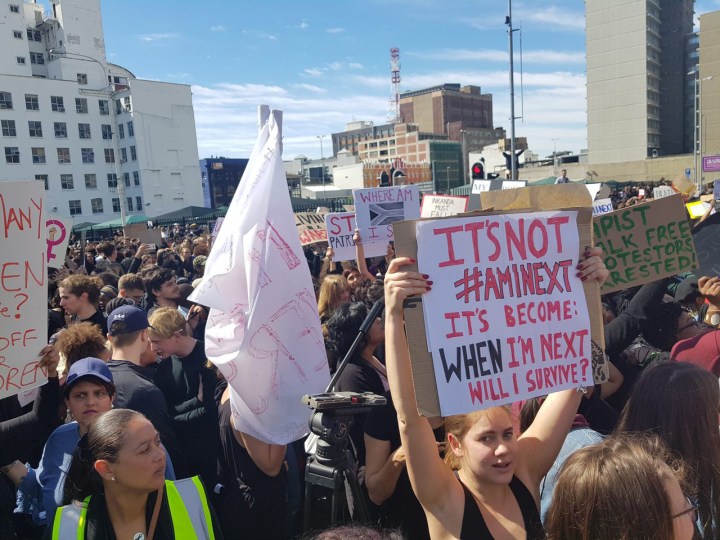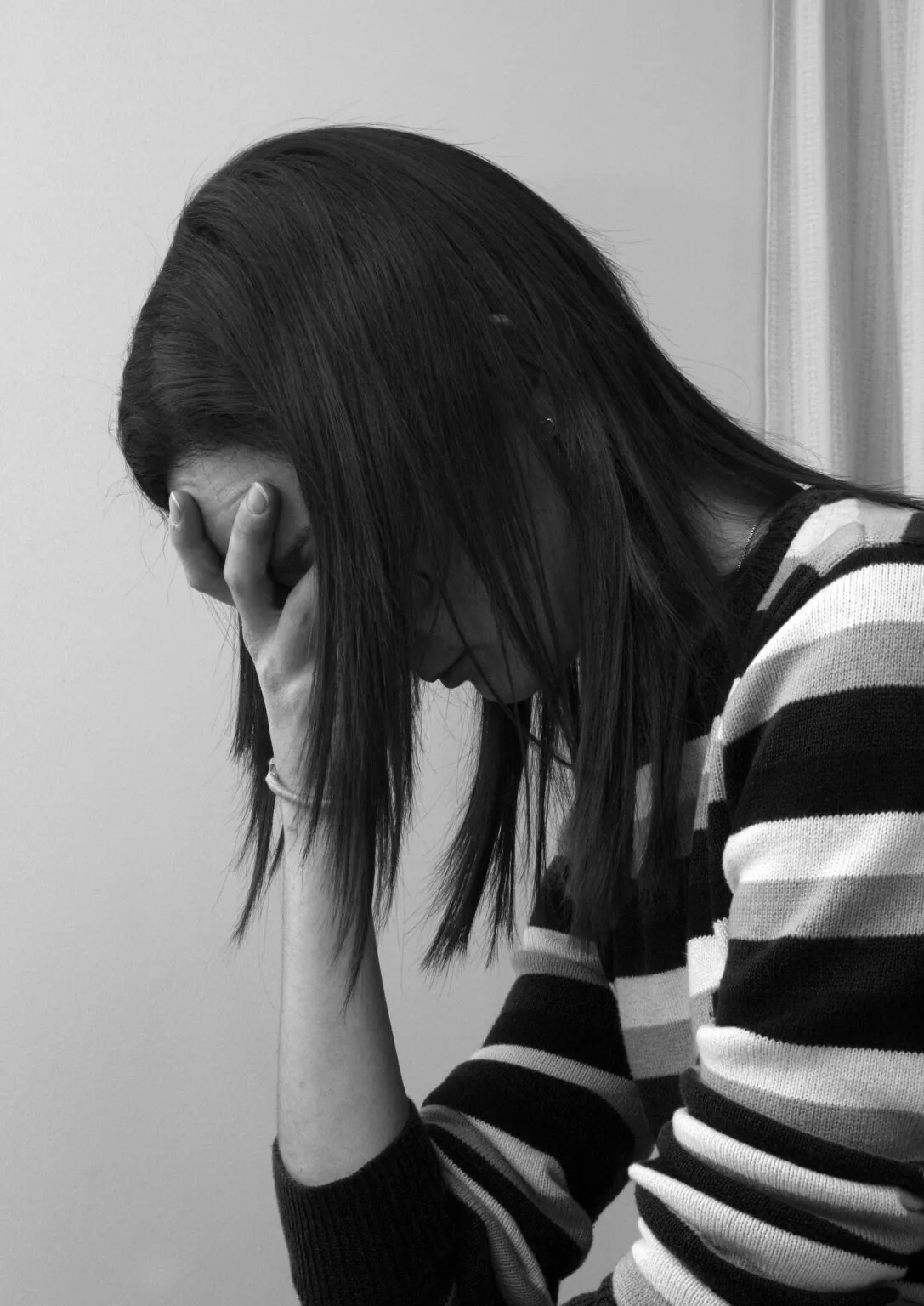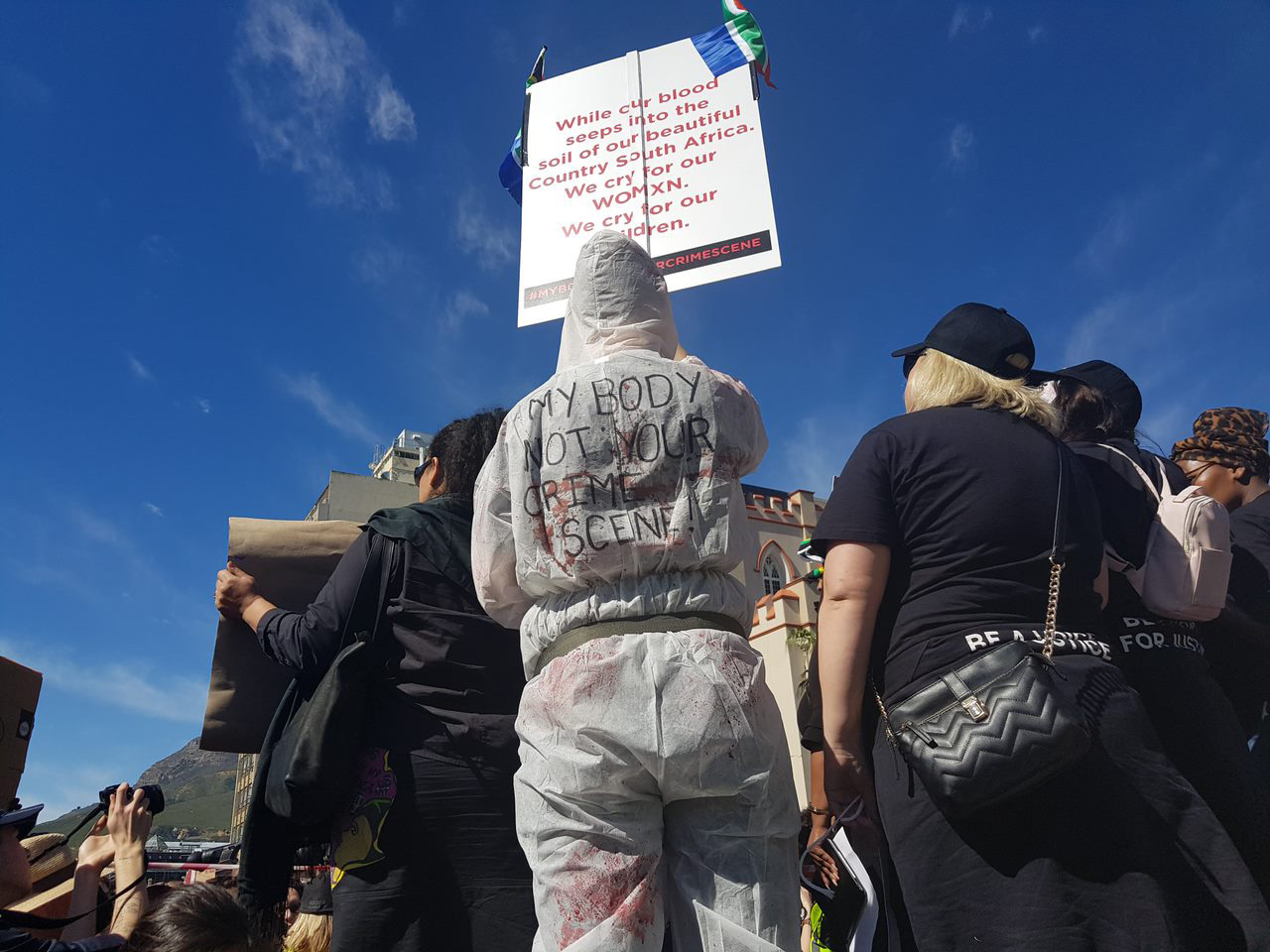SPOTLIGHT
South Africa’s staggering intimate partner violence stats aren’t shifting – here’s what we can do about it

Worldwide, 27% of women and girls aged 15 and older have experienced physical or sexual intimate partner violence. In South Africa this figure is a shocking one-third or even up to 50%.
According to a recently published Lancet Psychiatry report, intimate partner violence (IPV) is a public mental health issue that requires a collective societal change to tackle it effectively.
The report – The Lancet Psychiatry Commission on Intimate Partner Violence and Mental Health: advancing mental health services, research, and policy – is one of the largest global inquiries yet into IPV and included estimates for South Africa.
It found that IPV is the most common form of violence worldwide, including in South Africa, and contributes substantially to the global burden of mental health problems.
While the relationship between IPV and mental illness is complex, the authors are clear that it is women and girls who overwhelmingly bear the burden of these experiences. A root cause of this, they say, is gender inequality, something that manifests itself at all levels of society. They found that women and girls living in societies that are most unequal in terms of gender relations are at the highest risk of IPV, especially where violence against women is an accepted norm.
The authors suggest that societal norms that promote violence are a key issue that needs to be addressed. Men’s endorsement of sexist, superior or sexually hostile attitudes can all be predictors of someone who is likely to commit IPV, while women might be expected to tolerate violence against them.
What is the situation in South Africa?
Worldwide, 27% of women and girls aged 15 and older have experienced either physical or sexual IPV, but in South Africa the figure is a staggering one-third or even up to 50%.
Stellenbosch University’s Professor Soraya Seedat, who is the South African Research Chair in Post-Traumatic Stress Disorder and who also co-directs the South African Medical Research Council’s Unit on Anxiety and Stress Disorders, was one of the authors of the report.
He could only weaponise mental illness because of the stigma attached to it. It worked. It was as powerful a tactic as his physical abuse.
On whether IPV is getting worse in South Africa, Seedat says: “To some extent we became stuck. There have been pockets of progress but it is difficult to see them because this is such an endemic problem. It is entrenched. It is so common. It digs deep into the social fabric because it is so intertwined with all the other societal problems we have.
“It does require more than just a village to reduce the numbers.
“If we think about the actual number of people who are affected by IPV… We don’t work in a cohesive, in [an] integrated way to reduce the numbers with all sectors. There has been a siloed approach.”

People experiencing mental health problems often require the help of professional services to deal with their illness, but many survivors of intimate partner violence find interacting with these services harmful and re-traumatising. (Photo: Michael Summers)
She adds that South Africa is one of the top five countries for femicide as well, which means we have a much bigger problem than most countries. “Violence has become normalised, which is not true for many countries around the world.”
Seedat says poverty is one of the many drivers of IPV but is not the only factor. “We (South Africans) are aggressive and easily provoked, and IPV occurs in all socioeconomic groups.”
The figures available for South Africa indicated that one in three women and teenage girls experienced sexual violence and one in two physical violence. “These rates are very high, but one needs to think of it as occurring at any time during their lifetime. It can occur in a current relationship or the perpetrator could be a former partner.”
The true national scope of IPV is hard to quantify. She refers to a study published in BMC Public Health that found the odds of reporting experiences of IPV were lower among adolescent girls and young women (up to the age of 24) in rural informal/tribal areas than urban areas. Other studies elsewhere in Africa, however, have shown that disadvantaged urban settings can also “exacerbate underlying gender-based power disparities, with young women subject to intensive gender-based harassment and a pervasive threat of sexual and physical violence”.
Different types of violence
A wide range of violence is inflicted, including sexual, physical, emotional and economic – the latter two are less tangible and less researched. “We know it is very rare for one form of violence to occur without another form; these forms of violence go hand-in-hand,” says Seedat.
The result is psychological distress, which is often shared by the children.
The impact of emotional abuse and how it happens is often overlooked. One woman was quoted in the report: “Through my partner’s accusation of mental illness, he made me understand that no one would believe me regarding his abuse because society reduces people with mental illnesses as disconnected from the collective reality.
“I feared that if I shared my experience of abuse, I would be automatically discredited and disbelieved on the grounds of poor mental health, so I kept quiet.
“I didn’t want to trade the gaslighting of my partner for the gaslighting of a more powerful system, the psychiatric system, where whatever I said would be used as proof of me lacking mental capacity. He could only weaponise mental illness because of the stigma attached to it. It worked. It was as powerful a tactic as his physical abuse.”
The commission noted in the report that people experiencing mental health problems often require the help of professional services to deal with their illness. While this can be the first step towards recovery for many, the commission found that many survivors of IPV find that interacting with these services harmful and re-traumatising.
‘A perfect storm of IPV drivers’
Professor Rachel Jewkes, an executive scientist at the South African Medical Research Council and secretary of the Sexual Violence Research Initiative, wrote a comment for the Lancet Psychiatry Commission report. She says poverty is very strongly associated with IPV, and very poor urban areas such as informal settlements have the highest prevalence.

A third or even up to half of women and girls in South Africa aged 15 and older have experienced physical or sexual intimate partner violence. (Photo: Alicestine October / Spotlight)
“We have to address our very patriarchal gender relations and the stagnation of the economy and poverty.
“We also have to reduce the exposure of children to childhood trauma – both witnessing abuse and [experiencing] their own abuse and neglect – as [this] drives the next generation of IPV,” she told Spotlight.
“We also have very huge problems with alcohol abuse, which fuels severe IPV, and growing drug use problems. We need as a nation to still heal from the past and get over the severe mental health problems that so many people carry, with anger issues and impairment of trust, as these also drive IPV. South Africa almost has a perfect storm of IPV drivers and so unpacking them will take a long time,” says Jewkes.
Incremental improvements
Jewkes says there have been incremental improvements in the country over the past 20 years. “Over this time the knowledge that lay- and psychiatric nurse-delivered mental healthcare can be very effective has grown and so we are positioned for task-shifting to more feasible service provision – given the scarcity of psychologists and psychiatrists.
“But the health service over the last decade has reached increasing depths of dysfunction and that undermines progress in the know-how. I don’t think stigma is such a problem with IPV, it’s more a problem with rape, but service provision is the overwhelming problem.”
Read in Daily Maverick: “Cries for help ‘dismissed’ as young rural mothers succumb to gender-based violence”
Louise Howard, the commission’s lead author and a professor in women’s mental health at King’s College London, says: “There is a distinct lack of training offered to mental health professionals like myself. I am a practising psychiatrist. As a medical student, a trainee, and even when I started practising in general adult psychiatry, I was never taught about the effects of domestic violence. Given how prevalent this is among service users, this represents a desperate oversight that urgently needs to be addressed.”
What can South Africa do?
Seedat thinks two strategies can make huge inroads to ultimately reduce the incidence of IPV.
“We need a prevention and intervention strategy – on a national level,” she says. With relatively little cost, the country could have a prevention strategy in the school curriculum that “very aggressively deals with education and awareness about IPV”.
“But it is important that this curriculum is formulated in a way that it has an impact from primary school level onwards. Children should be taught about respectful relationships and gender equality via modelling. It needs to be driven by experts in the field. It needs to be embedded and entrenched – like a golden thread through schooling. Another golden opportunity is to teach and tutor all healthcare workers about gender-based violence and IPV because it is the most common form of violence.”
According to Seedat, it is important to teach healthcare workers how to ask patients about IPV. “You should be asking about it, but this requires skill and you need to know what to do about the information you receive. Listen to the patient and handle it in a respectful way, and be careful not to re-traumatise the patient or to stigmatise.”
Read in Daily Maverick: “Scourge of femicide and GBV continues to plague South Africa”
Jewkes says the ideal would be to have much more accessible mental healthcare services. She says making alcohol less accessible, massive job creation, and gender-transformative programming are all important. It would also help to fix maintenance issues that will enable women to leave violent men and ensure their children are financially supported.
Types of IPV
Physical violence: slapping, hitting, kicking, beating and choking.
Sexual violence: sexual contact and behaviour that occurs without explicit consent, including rape, attempted rape, sexual touching and forcing a person to perform sexual acts.
Emotional (psychological) abuse: insults, belittling, humiliation, intimidation, threats to harm and threats to take away children.
Controlling behaviours: acts designed to make a person subordinate or dependent, including isolating a person from family and friends, monitoring a person’s movements and restricting a person’s access to financial resources, employment, education or healthcare.
Coercive behaviours: a continuing act (or acts) of assault, threats, humiliation, intimidation or other abuse used to harm, punish or frighten a person. DM168
This article was published by Spotlight – health journalism in the public interest.
It also appeared in our weekly Daily Maverick 168 newspaper, which is available countrywide for R25.






















 Become an Insider
Become an Insider
Comments - Please login in order to comment.